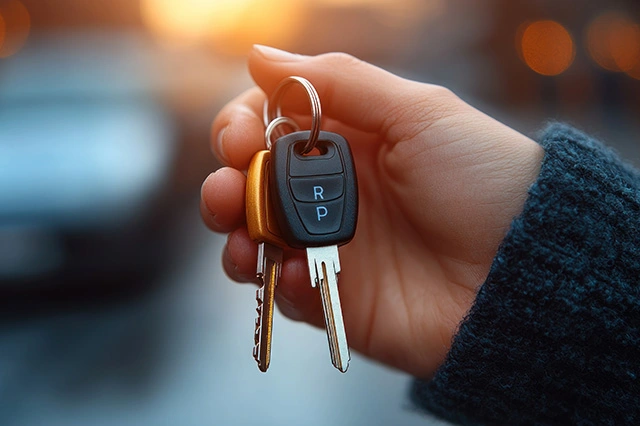Driving offences are a significant concern in the UK, impacting road safety and resulting in both fines and legal consequences.
While many motorists adhere to traffic laws, a notable portion of drivers frequently repeat certain offences. Understanding the most common driving offences, the demographics prone to repeat offending, and the potential consequences is crucial to tackling this issue.
Common Driving Offences
The UK has a well-regulated road safety framework, but certain driving offences occur repeatedly, either due to negligence, lack of awareness, or wilful disregard for traffic laws. The most common driving offences include.
Speeding
Speeding remains the most common driving offence.
The police issued over 2 million speeding tickets annually. Many drivers, especially on motorways and urban roads, fail to adhere to speed limits, and this becomes a recurrent issue due to the ease with which a minor infringement can lead to fines.
Driving Under the Influence (DUI)
Driving under the influence of alcohol (DR10) or drugs (DG10) is another prevalent offence.
Over 70,000 drivers are caught each year driving above the legal alcohol limit. This offence poses serious risks, often resulting in accidents. Some drivers repeat this offence, especially those battling addiction or who do not fully appreciate the dangers.
Driving Without Insurance
Over a million drivers are estimated to be uninsured at any given time, with tens of thousands being caught annually.
Driving without insurance is a serious offence, often leading to harsh penalties. Despite this, many offenders are repeat offenders, especially in areas where financial hardship makes insurance unaffordable for some. Driving without insurance, when caught, will lead to the vehicle being impounded by the police.
Using a Mobile Phone While Driving
The use of mobile phones while driving, despite being banned, continues to be a persistent issue. Thousands of motorists are caught each year using phones behind the wheel, often repeating the offence due to the ubiquity of mobile phones and their role in daily life.
Failure to Observe Traffic Signs
Disobeying traffic signs, such as running red lights or ignoring “no entry” signs, is another common driving offence. While this can sometimes be an honest mistake, repeat offenders are often individuals with a reckless disregard for traffic laws.
Dangerous or Careless Driving
Dangerous or careless driving, which can include tailgating, speeding, or aggressive driving, is another serious offence.
Some drivers habitually engage in such behaviour, making it a frequent cause of both accidents and fines.
Repeat Offending: How Common Is It?
Many drivers who commit a driving offence once are likely to repeat it, often for reasons such as habit, financial constraints, or poor driving skills. Repeat offending is particularly common in offences like speeding, driving without insurance, and using a mobile phone while driving.
- Speeding: A significant number of speeding offenders are caught multiple times, with many continuing to speed despite receiving fines or points on their licence. Studies show that habitual speeders may become desensitised to the risks of speeding, leading to continued infringements.
- Driving Without Insurance: Repeat offenders are more common among uninsured drivers, often due to financial pressures or misunderstanding the importance of insurance. Fines for this offence can exceed £1,000, but many still risk driving without cover.
- Using Mobile Phones: Using a mobile phone while driving is frequently repeated due to the habitual nature of phone use. Offenders often disregard the initial fines or licence points and continue to use their devices on the road.
Demographics of Repeat Offenders
Repeat driving offences can be attributed to specific demographic patterns, though it’s important to note that individuals from all walks of life can commit driving offences.
- Age: Younger drivers, particularly those under the age of 25, are statistically more likely to commit and repeat driving offences, especially speeding and mobile phone use. This is often due to a combination of inexperience, overconfidence, and a stronger reliance on digital devices.
- Gender: Studies have found that male drivers are more likely than female drivers to repeat offences, particularly speeding, dangerous driving, and driving without insurance. However, this gap has been closing in recent years as more female drivers have been caught using mobile phones while driving.
- Socioeconomic Status: Drivers from lower-income backgrounds are more likely to be repeat offenders in cases involving insurance and vehicle registration offences. The cost of vehicle insurance can be prohibitive, leading some individuals to repeatedly drive without insurance.
- Location: Offence rates are higher in urban areas with congested traffic and numerous road regulations. Areas with a high police presence, speed cameras, and other traffic monitoring systems also report more repeat offences.
Consequences of Repeat Driving Offences
The consequences of repeat driving offences becomes increasingly severe with each infraction. Common repercussions include:
- Fines: Repeated fines for offences like speeding, mobile phone use, or driving without insurance can accumulate, becoming financially burdensome. Fines for speeding can range from £100 to £2,500, depending on the severity and location of the offence.
- Licence Points: Accumulating too many points on a driver’s licence leads to disqualification. In the UK, drivers can accrue up to 12 points before facing disqualification (6 points for those with a licence for less than two years). Repeat offenders are more likely to have points on their licence, and thus risk disqualification.
- Driving Bans: Persistent repeat offenders may face temporary or permanent driving bans. Repeat offences such as DUI or dangerous driving almost always result in lengthy disqualification periods, with the potential for requalification testing before the licence is restored.
- Increased Insurance Costs: Offenders face higher convicted driving insurance premiums as insurers view repeat offenders as higher-risk drivers. For those who have repeatedly driven without insurance, finding a provider willing to offer cover can become increasingly difficult and costly.
- Criminal Record and Imprisonment: Serious offences such as dangerous driving, drink driving, or causing death by reckless driving can lead to imprisonment, especially if the driver is a repeat offender. Criminal records can severely impact future employment prospects and social standing.
The most common driving offences in the UK, such as speeding, driving without insurance, and using mobile phones while driving, are often repeated due to a range of factors, from habit to socio-economic conditions.
While certain demographics, such as younger male drivers, are more prone to repeat offending, drivers from all backgrounds contribute to this issue. The consequences for repeat driving offences are severe, ranging from increased fines and disqualification to imprisonment, making it essential for more stringent enforcement and driver education to reduce repeat offences on UK roads.







